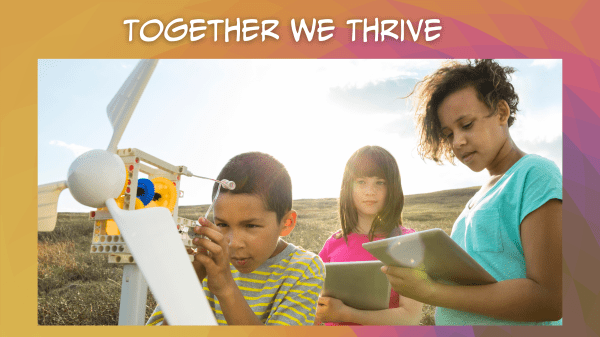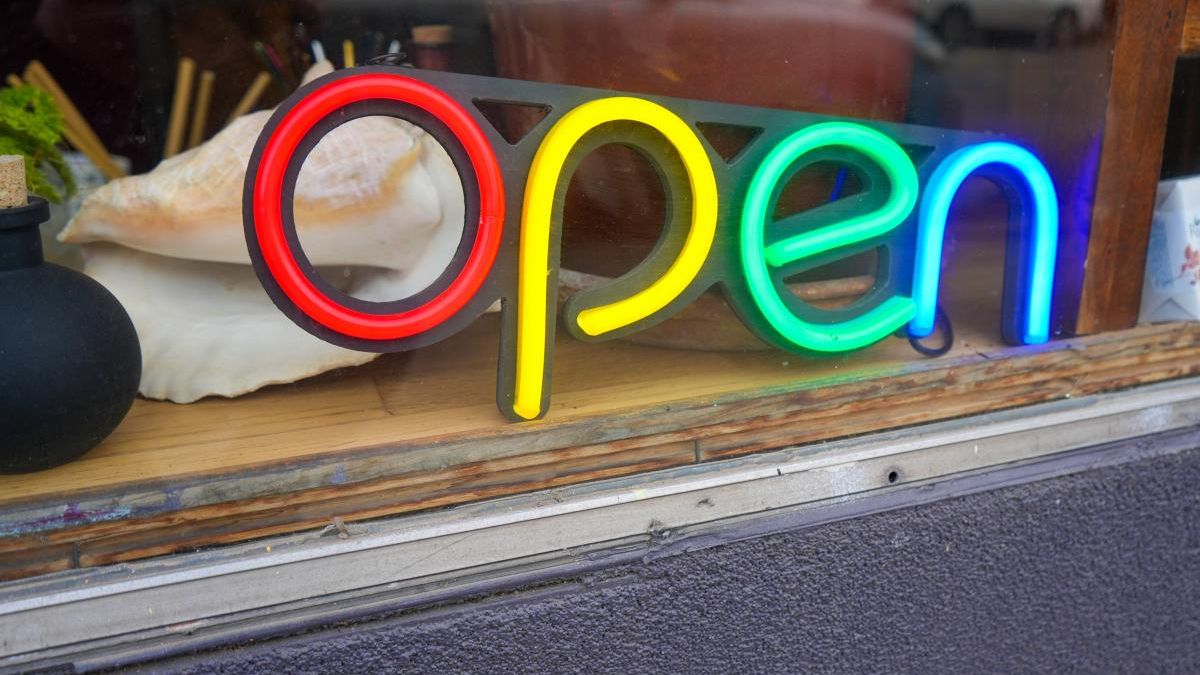5 Sessions for Teaching Climate Justice

Teaching about climate justice encourages personal reflection, fosters systems thinking, and activates student agency. We’ve organized the following recommended sessions from our 2023 Annual Conference: Together We Thrive! to reflect this process.
Curriculum and Tools to Help Students Reflect
Student-Driven Approaches to Environmental Justice in Canada
While not exclusively about climate justice, this session offers a model that helps students explore issues, understand systems, and act.
After introducing the Global Goals Action Progression and Smithsonian Science for Global Goals guides, presenters Katherine Blanchard and Jackie Kolb dive into a case study featuring the Environmental Justice! guide. In this case study, learn how to encourage your students to learn about their roles, values, and relationship to their environment through identity mapping and “Notice-Think-Wonder” reflections. Next, help your students create a shared definition of justice through a sense-making activity. Then ready your students to investigate community issues. For this task, you’ll help your students gather data and interrogate why issues exist within certain places and not others. At the end, students develop and launch an action plan with the community.
Teaching Climate Justice to Advance Community Resiliency to Climate Change
Climate Change Manager Bess Caplan at Howard County Conservancy outlines key climate justice concepts and examples within a sixth-grade unit. (Kaplan also discusses working with Howard County Public Schools (HCPS), if you’re interested in school partnerships.) Take a peek behind the Climate kNOWledge curriculum. Learn how sixth-grade students at HCPS begin to learn about climate justice while studying global and local impacts, including urban heat islands in their neighborhoods. In a tale of two towns, students also investigate the floods and reinvestments that affected Turner Station and Ellicott City. The unit also includes a conversation about emotions. Watch this session for a peer-tested sixth-grade curriculum to include in your own classroom.
Attending to climate emotions in education helps students cultivate resilience and thrive. One session stands out for its focus on this.
Tools for Climate Justice: Removing Barriers to Engagement
Comprising of youth climate advocacy and engagement specialists, the panelists were Abhay Sachal Singh of Break the Divide, Chantelle Spicer of the Simon Fraser Public Interest Research Group, and Jasveen Brar and Sabrina Guzman Skotnitsky, both of the Youth Climate Lab. The panel was moderated by Nelly Leo of Embark Sustainability Society. “How do you keep going with all the things that are happening?” was one of the first questions to the panel. Speakers discussed self- and community care, grief, and active hope. Panelists also shared activities and resources like the Youth Climate Lab Toolbox, paying particular attention to how youth are not a monolith. Discussions around emotions and justice are also introduced. This is a great session for every educator or professional working with youth.
From Inquiry to Action
Mapping Justice: Youth-Driven Innovation Toward Climate Resiliency
Directly involving students in inquiry and data gathering is important for students to understand the interconnectedness of systems like climate change and justice. This next session demonstrates how technology and EE help students produce moving and insightful capstone projects.
trubel&co Founder Nick Okafor introduces Mapping Justice’s liberatory framework to tackle community-based challenges. Through analysis, vision, and strategy, students explore drivers of social inequity, imagine a society driven by liberation, and design geo-tools to direct change. Okafor then moderates a panel in which the youth speakers discuss their self-directed student capstones. The capstone projects ranged from air quality near prisons, water contamination, and climate change impacts and inequality. Questions to the panel were also diverse. Panelists were asked about the importance of geospatial analytics, their experience learning new technology, and advice to their principal or superintendent for transforming the high school academic experience. To this last question, one of the panelists replied,
“To really don’t shy away from these issues that are going to be really important to kids. There were just no classes in my high school where we were talking about issues of climate justice, transgender rights, and all of these things that were so incredibly important to me in ways that I didn’t even know how to articulate when I was in high school. Bringing those issues to the table is so valuable [...] that it makes people feel seen when something that they’re really passionate about comes up in class. It also reinforces those passions and gets kids to start thinking about ways that they can go on and make a difference in those areas when it’s actually brought up and addressed in class.”
Rural Youth Organizing: Building Youth Organizing in Maine’s “Civic Deserts”
In this short session, JustME for JustUS (JMJE) Development Advisor Larissa Holland provides an overview of their youth-led civic projects. A civic desert is an area characterized by a severe lack of access, opportunities, and resources designed to encourage civic engagement. The core problem JMJE addresses is youth living in civic deserts are typically less experienced in civic life and largely disengaged from politics. After discussing some of the sources contributing to this problem, Holland is careful to emphasize that the term “desert” signals potential and fruitful ideas. Holland then describes the Rural Youth Organizers network, a first of its kind in Maine, its projects, and its successes and challenges. This session is insightful for anyone interested in place-based community education.
We’re teaching at a moment in time when we have more knowledge about not only the sources but the potential solutions to climate change. As Heather McTeer Toney in All We Can Save says, “We can plant seeds, but without watering and tending the garden, nothing grows.” Contextualizing climate change as a justice issue is a key element to creating collective and equitable climate action; planting the seeds of climate justice education nurtures our students’ awareness and agency.
These sessions (and more!) are now available for on-demand viewing on our conference platform, PheedLoop. If you missed our conference, you can still register today!
Image

It's Not Too Late!
Sign up for access to session recordings (through March 2024) from the 2023 Annual Conference and Research Symposium: Together We Thrive!

